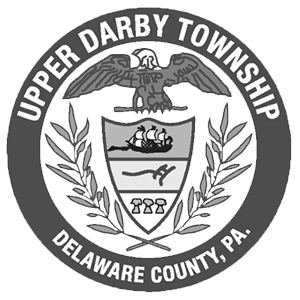Residency Requirement Eliminated in August 2019
Published on May 20, 2020
FOR IMMEDIATE RELEASE
May 20, 2020
LEGAL EXPERTS AGREE: UPPER DARBY RESIDENCY REQUIREMENT ELIMINATED IN AUGUST 2019
Despite their best efforts, Keffer administration is legally unable to reinstate longstanding Township Policy
Upper Darby Township, PA - Today, Upper Darby Mayor Barbarann Keffer announced that her administration’s attempts to reinstate a residency requirement for Township employees would constitute the unilateral change of a mandatory bargaining issue and it is therefore not allowed by Pennsylvania Law. The longstanding requirement was eliminated in August of 2019 by Ordinance 3059 which was signed into law and attested to by then Council President Donald Bonnett, then Mayor Thomas Micozzie, then Secretary of Council Jacob Bierling Jr., and then Chief Administrative Officer Thomas Judge Jr.
“In all sincerity, we were very surprised when we realized what they had done,” said Mayor Barbarann Keffer. “That is a major reason why I was advocating to reinstate a policy. You have to remember, under the previous Council, we usually only saw the ordinances the night of the voting meeting and only right before it started,” Keffer continued. “Sometimes they would give us notice and sometimes they wouldn’t. That’s just not the way we want to run things now.”
After discovering that the requirement had been eliminated, the new administration proposed an ordinance to reinstate a residency requirement. While in discussions on the issue with various collective bargaining units in the Township the issue was raised that this matter might not be able to be resolved by ordinance and that it may require a collective bargaining solution. After consulting with some of the state’s most well respected labor lawyers, the analysis was reached that any new residency requirement that was proposed to change what the previous Mayor and Council had done would constitute a unilateral change to a mandatory subject of bargaining, in violation of the Pennsylvania Public Employee Relations Act (“PERA” or “Act 195”).
“We have a lot of respect for the men and women that work for the Township. Their unions raised an issue and we took it very seriously. We consulted various legal experts and we intend to follow their opinion and uphold the law as we inherited it from the previous administration,” said the Mayor. “I ran on the promise of transparency and I’m going to tell the residents what is going on even when it isn’t perfect.”
“We appreciate the way Rongione & Mayor Keffer handled it,” said Transportation Workers Local 234 Business Agent George Bannon who represents the Township’s blue collar workforce. “Our union, and all the unions in the Township as far as I know, have been bargaining over this requirement for decades. When I brought it to Vince’s attention, he consulted the Mayor, got with the legal experts and handled it as quickly and fairly as possible under the circumstances.”
“There is really nothing the new Council and Mayor can do. The requirement was eliminated by the previous Mayor and Council and any attempt to reinstate it would subject the Township to a very expensive lawsuit that they would likely lose,” explained Sean Kilkenny, the Township’s solicitor. “We confirmed all of that with highly experienced labor counsel and they agree.”
“Honestly, it’s a tough pill to swallow,” said Upper Darby Chief Administrative Officer Vincent Rongione. “We may never know if the previous administration’s intent in eliminating the requirement but, in this case, it really doesn’t matter. For whatever reason, mistake or otherwise, they eliminated the requirement and it’s going to really cost the Township significantly.”
Courtney Richardson is the associate at Kilkenny Law who first discovered that the requirement had been eliminated while researching another issue and she saw it pretty clearly, “When an ordinance uses a phrase like ‘deleted in its entirety’ there is no room for interpretation. Sean and I reviewed the language and agreed. That is when we brought it to the Mayor.” Sean Kilkenny also represents 30 or so other municipalities and school districts in the region. Ms. Richardson went on to say, “We see a lot of municipalities getting away from these requirements anyway and moving toward the earned income tax model. You hate to see your clients hands tied in any situation but our job is to help them understand it from a legal perspective and make the best of it moving forward.”
# # #

